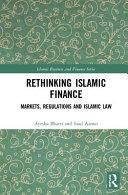This dissertation traces the modernization of Islamic legal practice in nineteenth- and twentieth-century South Asia by considering the relationship between colonial bureaucracy and local legal procedure. Focusing on the formalization and professionalization of the offices of the qāzī (Islamic judge) and muftī (jurisconsult; writer of legal opinions, fatwās), “Between Community and Qānūn” contends that the bureaucratization of legal procedure introduced new modes of legal activity that rendered Islamic law legible and relevant to the modern nation state. Traditionally, scholars have characterized South Asian legal history in terms of increasing Anglicization and codification, drawing attention to the colonial construction of law and the influence of knowledge-production projects like compilation, translation, and legislation. Though these projects had significant influence on the shape of the legal system, such attention to legislative efforts to segregate, systematize, and standardize legal practice has promoted a top-down understanding of law and legal activity throughout this period. By focusing on local practitioners like the qāzī, this dissertation takes a law and society approach to the study of colonial legal change to highlight the effects of authoring agreements, documenting exchanges, and recording everyday personal and familial affairs on ordinary individuals’ understandings of and interactions with the legal system.
This dissertation traces the modernization of Islamic legal practice in nineteenth- and twentieth-century South Asia by considering the relationship between colonial bureaucracy and local legal procedure.










